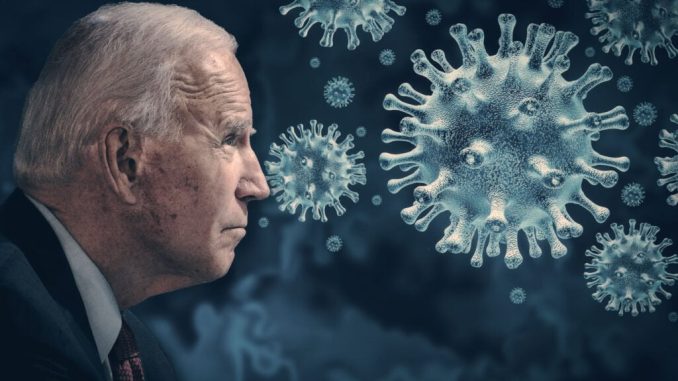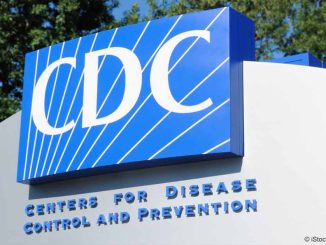
Original Article By Twila Brase, R.N.
After the shock of September 11, 2001 every state was asked to enact a law providing for unprecedented, comprehensive health surveillance and medical martial law.
The Model State Emergency Health Powers Act, proposed by the Centers for Disease Control and Prevention (CDC), would provide a state’s governor with sole discretion to declare a public-health emergency. Once the emergency was declared, public-health officials would assume police powers, the militia would be mobilized, and the legislature would be prohibited from intervening for 60 days. Any new orders and rules issued by the governor would have the full force of law. Existing laws and individual rights could be suspended.
This is what we’re seeing happen today! And don’t forget, this was proposed by the Centers for Disease Control and Prevention (CDC).
To promote the legislation, state officials and legislators have related it almost exclusively to the threat of bioterrorism. But broader authority was also proposed.
The new powers would be authorized during any declared public-health emergency. An emergency could be declared with the occurrence or imminent threat of a health condition or illness that is believed to be caused by bioterrorism, or the appearance of a novel, previously controlled, or previously eradicated infectious agent or biological toxin.
That belief is the only criterion. And although there must be potential for a large number of people to be affected, there is no definition of “large number.” The governor, in consultation with health officials, would decide.
This is exactly what’s happening now!
The 40-page proposal would require individuals to submit to state-ordered vaccinations, examination, testing, treatment, and specimen collection. Resisters would be charged with a misdemeanor and quarantined. Physicians and other health-care professionals would be required to perform medical procedures or be charged with a misdemeanor.
Quarantine, or isolation, could be imposed without a court order, although an order would have to be obtained “promptly” thereafter. Medical care could be rationed or withheld; private property could be taken or destroyed; compensation for loss of property would be limited; and no person acting under the orders of government officials would be held liable for death, injury, or property damage.
The names, addresses, and physical conditions of, and any other necessary information about, individuals suspected of harboring diseases or health conditions that might have been caused by bioterrorism or an epidemic would have to be reported immediately by doctors and pharmacists. No patient consent or notification would be required.
This is a “breathtakingly expansive scope of the definition of ‘public health emergency.’”
On December 21, 2002 the CDC unveiled its final proposal. Some sections were more egregious than ever.
Due process is virtually eliminated. Health officials could pluck citizens out of their homes, place them in quarantine, and need not apply for a court order until ten days later. Nothing specifically would prevent officials from using quarantine or its threat to coerce individuals into submitting to medical procedures they would otherwise refuse. And although a court hearing would be required 48 hours after the court order was received, health officials could request a delay.
This is what a totalitarian government does. We are in the last days as Jesus described in Matthew 24 and Luke 17:26-37. 26 And just as it happened in the days of Noah, so will it also be in the days of the Son of Man: 27 people were eating, they were drinking, they were marrying, and they were being given in marriage, until the day that Noah entered the ark, and the flood came and destroyed them all. 28 It was the same as happened in the days of Lot: they were eating, they were drinking, they were buying, they were selling, they were planting, and they were building; 29 but on the day that Lot left Sodom, it rained fire and brimstone from heaven and destroyed them all.
Doctors, other health professionals, and health-care institutions would also face coercion. If they refused to follow state-ordered medical directives, officials could strip them of their licenses to practice or operate in the state. On the order of an official, those who take an oath to protect patients might be compelled by state law to harm them (such as by administering a vaccine or performing a high-risk procedure). If a physician questioned directives, followed his conscience, advised citizens to refuse, or obstructed the plans of state officials, he could end up flipping burgers to support his family.
Additional provisions of the final proposal are just as alarming. Isolation of the sick and quarantine of the exposed must be in different locations, assuring the separation of children and parents. As in the first draft, state officials could ration care, initiate continuing health surveillance, commandeer and control medical supplies, and confiscate personal property. And although the misdemeanor charges were dropped for citizens who don’t comply with medical procedures, those who refuse to submit to quarantine and isolation could still be charged with a crime.
With contact tracing and cell phone apps, they can demand your quarantine and isolation.
The media soon sounded the alarm. By January 2002, the San Francisco Chronicle had warned of endangered civil rights. Investor’s Business Daily called the bill “unhealthy tyranny.” Jewish World Review said it is a “prescription for disaster,” and the Wall Street Journal reported that a “new battleground” had been created between health officials and civil libertarians. In early April, Time magazine covered the issue of detention powers in an article aptly titled “Mr. Quarantine, meet Miss Liberty.”
Public-policy groups began rallying their constituents. The American Legislative Exchange Council (ALEC), a group of 2,400 conservative state legislators, opposed the model act and set up a Web page to track the legislation in every state. The Eagle Forum dedicated an entire radio program to the issue. The Free Congress Foundation denounced the act as a “bad idea.” The Association of American Physicians and Surgeons expressed concern about granting governors “dictatorial power.” And the Institute for Health Freedom warned of “new state medical police powers.”
And yet, with all the voices stating their concerns, here we are with most of these practices implemented today in 2021.
Gostin defended the proposal’s purported modernization of the public-health laws. In the December Insight magazine he claimed the September 11 attack had one silver lining: “The political community is coming together with a clear determination to protect the civilian population from harm.” Nothing could be a more inverted reality than that statement.
In a classic doublespeak, Gostin also claimed that data-privacy safeguards would be in place. But his proposal would permit state public-health agencies to share an individual’s medical information with law-enforcement officials, other government agencies, and public-health officials in other states. What happened to HIPA? GONE!
The CDC reportedly agreed to pay Gostin $300,000 a year for up to three years to write the model act. He’s professor of law at Georgetown and Johns Hopkins universities and sits on the Institute of Medicine’s Committee on Assuring the Health of the Public in the 21st Century.
Expanded health powers have long been on Gostin’s agenda. The CDC Center for Law and the Public’s Health, which he heads, spent the past couple of years culling existing state public-health laws in order to write a uniform comprehensive law that all states could enact. In 1998 Gostin co-wrote a paper proposing that states provide health officials with “a broad and flexible range of powers. By equipping public health authorities with graded powers ranging from isolation, quarantine, and directly observed therapy to cease-and-desist orders or mandated counseling, education, or treatment, authorities will be able to tailor interventions to the specific situation and disease threat.”
Health surveillance is the key. To identify emerging health threats, Gostin claims government officials must be empowered to monitor the most minuscule medical details of American life. “If there’s a run on anti-diarrhea medications, how would [the federal government] know that?” Gostin asked. Therefore, the health-powers proposal would require an active disease-surveillance system, forcing doctors, hospitals, and pharmacists to share patient data with state health officials.
The Bush administration liked the idea of health surveillance, and in January the Department of Health and Human Services made $1.1 billion available for bioterrorism preparedness. Federal funding was directed to, among other things, the development of round-the-clock disease-reporting systems involving hospital emergency departments, state and local health officials, and law enforcement.
The potential effectiveness, or lack thereof, of the CDC’s heavy-handed proposal received little attention in 2002. The violent history of martial law has been ignored. Disregarding human nature and all wisdom to the contrary, health officials continue to march a top-down command-and-control proposal across the nation.
Public trust requires thoughtful contingency plans that uphold constitutional rights and freedom of conscience, support medical ethics, and encourage voluntary cooperation with disease containment strategies.
They have thrown all that out now. They don’t respect the constitution or anything about it, but instead work overtime to remove every section and amendment that originally guaranteed our liberties and freedom.
State legislatures have rushed to enact ill-conceived, ineffective legislation. Public policy should recognize and respect the rights, dignity, and intelligence of individuals. They aren’t today. An angry public is not a cooperative public. If health officials are empowered to harm the very people legislators claim to protect, a public-health emergency may soon become a crisis of the public’s trust. That day has come.




